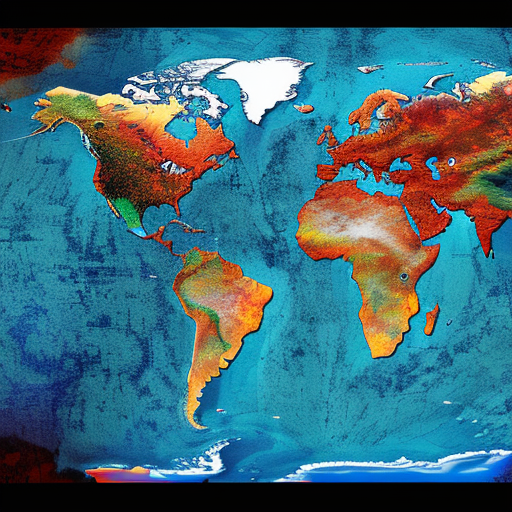One-line summary: “Prisoners of Geography” by Tim Marshall explores how geography shapes the political and strategic landscape of the world, highlighting the importance of understanding geographical factors in global politics.
Geography as a Determining Factor in Global Politics
In “Prisoners of Geography,” Tim Marshall delves into the significant role that geography plays in shaping global politics. He argues that while ideologies, cultures, and economies are important, it is geography that ultimately determines the fate of nations. Through ten maps, Marshall examines different regions of the world and demonstrates how geographical features such as mountains, rivers, and coastlines influence political decisions, alliances, and conflicts.
Marshall begins by discussing Russia’s vastness and its impact on its historical expansionist tendencies. He explains how Russia’s lack of natural barriers to the west has made it vulnerable to invasions throughout history, leading to a defensive mindset and a desire for buffer states. He also explores the influence of the Arctic region and its potential for future conflicts as melting ice opens up new shipping routes and access to natural resources.
Moving on to China, Marshall highlights its geographical advantages and challenges. China’s size and population give it significant power, but its lack of natural resources and vulnerable borders pose challenges. He examines China’s territorial disputes in the South China Sea and its desire for a “string of pearls” strategy to secure its maritime interests.
The Impact of Geography on the Middle East
The Middle East is another region where geography plays a crucial role in shaping politics. Marshall explains how the scarcity of water resources and the presence of oil have influenced conflicts and alliances in the region. He discusses the historical tensions between Sunni and Shia Muslims, the impact of the Suez Canal on global trade, and the strategic importance of the Persian Gulf.
Marshall also explores the role of geography in the Israeli-Palestinian conflict. He examines the significance of Jerusalem as a religious and cultural center, the challenges posed by the West Bank’s geography, and the importance of the Golan Heights for Israel’s security.
Geopolitical Challenges in the United States and Europe
In the United States, Marshall focuses on the geographical factors that have shaped its history and politics. He discusses the impact of the Appalachian Mountains, the Mississippi River, and the Great Plains on the country’s development. He also examines the challenges posed by the vast distances between the coasts and the heartland, as well as the influence of the border with Mexico on immigration policies.
Turning to Europe, Marshall analyzes the impact of geographical features such as the Alps, the North European Plain, and the Mediterranean Sea on the continent’s history and politics. He discusses the challenges of maintaining unity within the European Union, the importance of the English Channel as a natural barrier, and the historical conflicts between Eastern and Western Europe.
Overall, “Prisoners of Geography” emphasizes the importance of understanding the geographical factors that shape global politics. It highlights how natural resources, borders, and strategic locations can determine the fate of nations and influence their interactions with one another.
- Geography plays a crucial role in shaping global politics, often surpassing the influence of ideologies and cultures.
- Russia’s lack of natural barriers to the west has made it vulnerable to invasions throughout history, leading to a defensive mindset and a desire for buffer states.
- China’s size and population give it significant power, but its lack of natural resources and vulnerable borders pose challenges.
- The Middle East is heavily influenced by the scarcity of water resources and the presence of oil, leading to conflicts and alliances.
- Geographical factors have played a significant role in the Israeli-Palestinian conflict, including the importance of Jerusalem and the challenges posed by the West Bank’s geography.
- In the United States, geographical features such as mountains, rivers, and vast distances have shaped its history and politics.
- Europe’s geography has influenced its history and politics, including the challenges of maintaining unity within the European Union and the historical conflicts between Eastern and Western Europe.
“Geography is the backdrop to history, and history is the backdrop to politics.”












